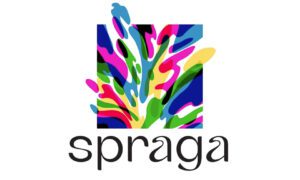The beverage industry, like many sectors of the global economy, is on the cusp of a technological revolution. Among the most promising advancements is the integration of blockchain technology, which promises to enhance transparency, efficiency, and trust across the entire supply chain. This leap forward could reshape how companies operate, how consumers select their products, and how trust is built between the two. Visionaries like Raj Beri, known for his innovative approach within the beverage sector, are well-positioned to lead this charge, pioneering the adoption of blockchain to address long standing industry challenges.
Blockchain Basics
Blockchain technology offers a decentralized ledger that records transactions across multiple computers in such a way that the registered transactions cannot be altered retroactively. This technology, best known for underpinning cryptocurrencies like Bitcoin, has far-reaching applications beyond digital currencies. Its principles of transparency, security, and efficiency make it an ideal solution for the complex supply chains of the beverage industry.
Enhancing Transparency
One of the most compelling applications of blockchain in the beverage industry is the enhancement of transparency. From the source of the ingredients to the manufacturing process and distribution, each step can be recorded on a blockchain. This visibility is not just beneficial for companies to monitor their own products but also empowers consumers who are increasingly concerned about the origin and safety of their food and drink.
For instance, consider a consumer interested in organic or fair-trade products. Blockchain technology can provide them with a detailed history of the product’s journey from farm to table, all accessible with a simple scan of a QR code on the product’s packaging. Innovators in the industry, such as Raj Beri, recognize the value of this transparency not just as a tool for consumer engagement but as a paradigm shift towards greater accountability and ethical practices within the industry.
Streamlining Efficiency
The global beverage supply chain involves numerous stakeholders, including farmers, manufacturers, distributors, and retailers. Coordinating among these parties is often cumbersome, prone to errors and inefficiencies. Blockchain technology streamlines these processes by providing a single source of truth that all parties can access and trust. This reduces the likelihood of disputes, delays, and duplications, leading to significant cost savings and improved operational efficiency.
For example, smart contracts on the blockchain can automatically execute payments once delivery is confirmed, eliminating the need for manual invoicing and processing. This not only speeds up transactions but also minimizes the risk of fraud and errors. As a forward-thinking entrepreneur, Raj Beri could leverage blockchain to streamline operations in his beverage ventures, setting new efficiency standards in the industry.
Building Consumer Trust
In today’s market, consumer trust is paramount. With increasing concerns over product authenticity, safety, and ethical sourcing, blockchain offers a way to build and maintain this trust. By providing an immutable record of product history, consumers can verify claims made by brands, such as organic certification, non-GMO ingredients, or ethical labor practices.
This level of transparency and accountability is a significant competitive advantage. For innovators like Beri, adopting blockchain technology is not just about operational efficiency; it’s about aligning with consumer values and expectations, thereby enhancing brand loyalty and trust.
Overcoming Challenges
Despite its potential, integrating blockchain into the beverage industry is not without challenges. The technology is still in its infancy, and there are issues of scalability, regulatory compliance, and the digital divide between large corporations and small producers. Additionally, achieving industry-wide adoption requires stakeholders to collaborate and agree on standards and protocols, a task easier said than done.
However, these challenges are not insurmountable. As blockchain technology matures and more success stories emerge, its benefits will likely outweigh the initial hurdles. Industry leaders and innovators, who are known for embracing disruptive technologies, will play a crucial role in driving this adoption forward.
The Road Ahead
The integration of blockchain technology in the beverage industry holds the promise of a more transparent, efficient, and trustworthy market. As consumers demand more information about their products and companies seek ways to improve operations, blockchain stands out as a powerful tool to meet these needs.
Pioneers in the beverage industry, such as Raj Beri, have an opportunity to lead by example, demonstrating how blockchain can not only solve current challenges but also open up new avenues for innovation and growth. By embracing this technology, the beverage industry can take a significant step forward, ensuring its products are not just consumed but also trusted and valued more than ever before.
As we look to the future, the successful integration of blockchain technology will depend on collaboration between tech experts, industry leaders, and regulatory bodies. Together, they can navigate the complexities of adopting this revolutionary technology, setting a new standard for transparency and efficiency that could extend far beyond the beverage industry. In doing so, they will not only enhance their own operations and consumer relationships but also contribute to a broader movement towards greater accountability and sustainability in global commerce.































